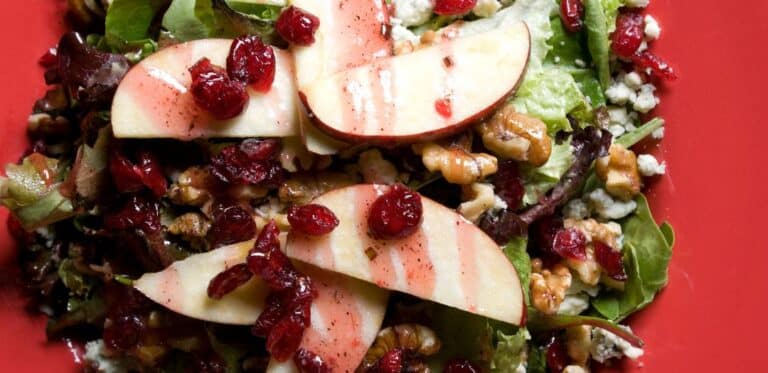Is It Okay To Have Cheat Days?
If you’re struggling to eat healthily, cheat days – where dieters allow themselves to eat their favorite treats one day each week – could make dieting easier.
But is it actually a good idea to allow yourself a day of indulgence? Or are you just undoing all the good work you achieved during the week?
Here we take a look at both sides to help you to decide if cheat days could work for you while you’re on a diet.
How Cheat Days Could Boost Weight Loss Success
Some people believe that cheat days, or sometimes just a cheat meal, help to give you a break from your healthy eating regime.
A cheat day allows you the freedom to indulge in your not-so-diet-friendly favorites. This is often a reward for having stuck to your diet for the other six days of the week.
It’s thought that the promise of a day of indulgence makes healthy eating throughout the week more bearable.
It can be difficult to go from an unstructured diet to a more restrictive one. And there will often be times when holidays, eating out, and other social situations make it hard to stick to your diet.
So, with a cheat day or a cheat meal once a week, you can allow yourself a little freedom to indulge in something you’ll really enjoy
The logic is that after your ‘day off’, you’ll return to your diet the following day with added motivation; your cravings have been satisfied, and the thought of a juicy burger is no longer driving you crazy.
It’s a way to allow yourself the chance to ‘slip up’ but without the guilt that often accompanies an unplanned slip.
This is because you consciously choose to indulge and then fully intend to restart the following day again.
Some studies even show that indulging in high-calorie and high-fat treats after a period of restriction can ‘wake up your metabolism into realizing that it has some work to do and even increase the production of the appetite-suppressing hormone leptin.
The Problem With Cheat Days
So it sounds like cheat days could hold the answer to sticking to your diet without feeling deprived and might even help weight loss. But it’s not quite as simple as that…
1. Cheating Reinforces The Idea of ‘Good’ & ‘Bad’ Foods
First of all, the idea of ‘cheating’ on our diets reinforces the idea of indulging in something forbidden or ‘bad’. This can then add greater emotional value to this treatment.
Emotional eating is a difficult habit to break, and rewarding yourself with food only strengthens the link between emotion and food, making it more likely that you’ll overindulge when your cheat day rolls around.
And, as we reinforce the idea of bad or unhealthy foods to lust after, we reinforce the idea of ‘good’ or ‘healthy’ foods, many of which are only good when eaten in moderation.
Studies show that when we think of food as being healthy, portion control is forgotten, and we tend to overeat.
Many foods are healthy in moderation, but once you start piling up your plate thinking that it’s all ‘good’ food, you’re more likely to go over your calorie allowance and then struggle to lose weight as a result.
2. Cheating Fuels Cravings And More Cheating
You might think that you can compensate for your cheat day by holding yourself back for the rest of the week.
However, you’re actually less likely to reach your weight loss goal if you cheat regularly.
This is because taking a day off and over-consuming on sugar, salt, and fat only fuels your addiction to these types of foods, meaning that you’ll wake up the morning after your cheat day with a weakened resolve to resist these foods.
After your cheat day, you’ll probably feel even more deprived at the thought of going back to your 1200-calorie limit. This then makes it more likely that you’ll eat even more come your next cheat day, further fueling the cycle.
The result is then likely to be increased feelings of deprivation and a whole load of cravings you must wait a week to satisfy. All this means more chance that you’ll quit altogether.
3. Cheating Isn’t A Long-Term Solution
Lastly, if you feel such a need to cheat on your diet, then it could indicate that your diet really isn’t working for you.
Eating healthily shouldn’t be a punishment – if you don’t like a certain food, then don’t eat it; there are plenty of nutritious and delicious options to choose from.
If your diet is so restrictive that you feel the need to cheat once a week, this certainly doesn’t sound like the recipe for a healthy relationship with food, which should be your ultimate aim when losing weight for good.
Finding A Compromise

So, if cheat days aren’t such a great idea after all, what’s the solution?
Like most things in life, the key word is moderation. A truly healthy diet means consuming a wide variety of foods, none of which are considered all good or all bad.
Long-term weight loss requires a long-term plan; this involves filling and nutrient-rich meals, planned snacks, and even treats, as long as they’re in smaller portion sizes and all within your overall calorie limit.
If you’re wondering what a diet of all things in moderation means, then these tips will help you to achieve it:
Pay Attention To Your Appetite
Studies have found that denying ourselves what we really want and opting for what we feel is a healthier version out of obligation, such as choosing a protein bar when really you want some chocolate, actually makes us feel hungrier.
So, if you feel like eating what could be considered a not-so-healthy food, such as pizza, do it – in moderation!
If you get to eat what you actually want, you’ll end up eating a more reasonable amount of it and feeling a lot more satisfied afterward.
Treat Yourself Now And Again
Many people who have successfully lost weight and maintained it recognize that denying themselves completely makes weight loss both mentally and physically difficult.
Some people refer to this as an 80/20 way of eating; they eat healthy, nutritious food 80% of the time and less nutritious, unhealthier food 20% of the time.
However, instead of sectioning off a day of the week to go all out, they tend to eat in a more natural way.
This means spreading treats out throughout the week, such as a bar of chocolate, a serving of creamy mashed potatoes, or a drink out with friends.
This way of eating will help you to take control over food again as you’re making the choice to treat yourself or not, which should also make mealtimes more pleasurable.
What’s more, loosening the reigns occasionally can help to ‘jump-start’ your metabolism and even help you to break out of a weight loss plateau.
Savor The Flavor
You’re in control of what you eat, but you should give the food you’re eating the attention it deserves, especially if it’s a special treat.
Eat slowly and take the time to really taste and appreciate what you’re eating so you can stop when you’re full.
This kind of mindful eating results in a better connection between hunger cues and appetite, meaning that you’ll feel more satisfied with a smaller portion, once again consolidating the move towards a healthy relationship with food.
So, the take-home message is to treat yourself, but don’t just reserve one day a week to go crazy. And, be mindful when you do treat yourself, making every bite count.
Although it might seem difficult to imagine when you first start eating healthily, your desire for your favorite treats will actually reduce over time. This means that the occasional small treat will soon become more than sufficient.
Indulging in weekly cheat days, which could turn into 24-hour binges, makes this next phase difficult to achieve.
Cheat days can mean that you cheat yourself out of the opportunity to break the cycle of craving unhealthy foods.
If you’re finding it difficult to establish a healthier eating regime, then PhenQ can help boost your ability to resist temptation by reducing cravings and curbing hunger with its combination of premium active ingredients.
Do you have a weekly cheat day? Let us know by commenting below!






